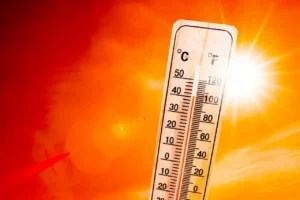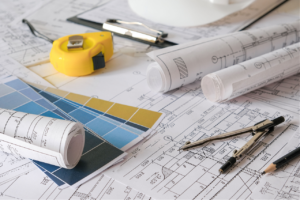China at Forefront of Environmentalism?
by Arrol Gellner, Inman News
(This is Part 3 of a four-part series. Read Part 1, “China’s growth has lessons for U.S.,” and Part 2, “As China grows, so do its problems.”)
 When it comes to environmentalism, the Chinese are bad, bad people, right?
When it comes to environmentalism, the Chinese are bad, bad people, right?
Not exactly.
Thanks to their government’s skill at disseminating ideas, the Chinese are acutely aware of their environmental troubles.
Given their many other priorities, the surprise is that they’ve already started grappling with the problem.
The Chinese have had basic energy conservation practices in place for years. On my first visit to Shanghai in 1994, for example, I was surprised to see solar water heaters crowding the rooftops of practically every apartment block — something we don’t see in the United States even today.
And things have only improved since then. Energy-saving fluorescent lamps are now the rule rather than the exception in China, not only in commercial and industrial buildings, but in residences as well. Even more efficient LED lighting is widely used in traffic signals, street lighting, and many other applications.
While China’s streets are regrettably teeming with more cars than ever, they’re also increasingly well populated with innovative and affordable electric bicycles, scooters and utility vehicles. Granted, since these are recharged by being plugged into the nation’s largely coal-generated electrical grid, their environmental friendliness remains arguable — yet they’re nevertheless a more visible sign of innovation than we find on our own SUV-clogged streets.
And while American automakers are floundering thanks to the incredible shortsightedness, stupidity and greed of upper management, their scrappy Chinese counterparts are almost certainly hard at work on the design of zero-emission vehicles that will someday ease China’s pollution troubles, and perhaps our own as well.
None of this is to excuse China’s deficiency in other areas of environmental policy. Its tolerance for industrial polluters, in particular, is a disgrace. Yet this is a calculated economic decision aimed — with spectacular success — at attracting foreign investment. Lax restrictions on polluters are in fact one major reason so many American corporations have moved factories to China. Yet this current lassitude will also come to an end when the Chinese government’s environmental priorities inevitably supersede those of economic growth.
When will this happen? In the United States, gross industrial pollution continued utterly unhampered for a century. At China’s current rate of progress, and despite its posturing to the contrary, industrial polluters may well be brought up to Western standards within the next decade.
What’s more, when the Chinese decide they’re ready to tackle their environmental problems full force, they’ll move quickly. Unlike us fiercely independent-minded Americans, the Chinese are far more amenable to sweeping change being imposed from the top down — a deep-seated cultural trait that stems, not from China’s trifling time under Communism, but rather from its nearly three and a half millennia under dynastic rule.
The result is that official pronouncements — whether they concern spitting on the sidewalk, smoking in restaurants, or wasting electricity — are acted upon with a sense of earnestness and devotion that’s quite impossible to imagine here in the United States. So when an exemplary environmental policy finally reaches the top of the agenda, those bad, bad Chinese may yet become Mother Earth’s best friend.
What’s your opinion? Leave your comments below or send a letter to the editor. To contact the writer, click the byline at the top of the story.
Copyright 2008 Arrol Gellner
See another Arrol Gellner feature, Central Heating’s Come a Long Way.
Check out AAOA Green Forum for the latest on green real estate issues.
American Apartment Owners Association offers discounts on products and services related to your commercial housing investment including REAL ESTATE FORMS, tenant debt collection, tenant background checks, insurance and financing. Find out more at www.joinaaoa.org.
To subscribe to our blog, click here.













 Accessibility
Accessibility